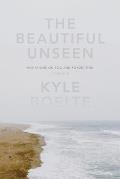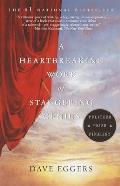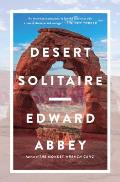
When I was a teenager in Colorado during the late '90s, I liked to climb 14ers — 14,000-foot mountains. I'd often hike with friends, and at the top we'd take a photograph of ourselves standing on the summit. We'd set the camera on a rock and use the timer function, or, if another hiker happened to be at the top at the same time we were, we might ask her to take the shot. When I hiked alone, I'd sometimes take my camera out and point it at myself, to capture an image of me floating in the clouds.
That was before selfies. Of course, people had been taking self-portraits for years, but the concept of the selfie was not part of the culture yet. Now, it's inescapable. Everyone takes selfies. On top of mountains, at the grocery store, at school, in the bathroom, at the Oscars, inside the White House.
Perhaps we live in the age of the selfie, a time of insecurity — about jobs, about the future, about our place in the world — but also a time of extreme self-regard.
We are no longer just people, human beings. We aren't just our professions, either. In addition to whatever else we are — farmer, lawyer, teacher, mechanic, mom, dad, friend — we are all now our own publicity departments, too.
÷ ÷ ÷
I first read Dave Eggers's memoir A Heartbreaking Work of Staggering Genius 10 years after it was released. I had heard about it for years. Who hadn't? It was a book you couldn't escape, and for good reason: it's quite good. What intrigued me most about the book was the stuff about MTV's The Real World.
It's the early '90s. Both of Eggers's parents have died, and he's taking care of his younger brother, Toph. They've moved to San Francisco. The book is about Dave and Toph's relationship as they attempt to make it in the world, as orphans. But it's also about Dave's search for fame. He's emblematic of a generation. He wants to join the cast of The Real World, so everyone can see his greatness on display.
 In the end, the plan doesn't work out. He's rejected. He becomes angry. How could the producers not recognize his greatness?
In the end, the plan doesn't work out. He's rejected. He becomes angry. How could the producers not recognize his greatness?
Luckily, there are other avenues to fame.
Eggers decides to start a magazine. Later, he writes a book about being rejected by The Real World. He becomes famous.
A Heartbreaking Work of Staggering Genius was not the first memoir of "the confessional age," the '90s, but it was probably the zenith. (The confessional age now looks like the logical precursor to the age of the selfie.) Reading A Heartbreaking Work 10 years after it was published, and almost 20 years after The Real World premiered, highlighted the dubious journey we've all been on these past few decades: the unabashed celebration of the self.
÷ ÷ ÷
In high school, my favorite book was probably Edward Abbey's Desert Solitaire. It documents several years Abbey spent working in Arches National Park, in Utah. Desert Solitaire is basically a memoir, though I'm not sure I've ever heard anyone call it that. That's probably because it's as much about the desert of southern Utah as it is about Abbey himself.
It's interesting that people who care about the natural world, who write about the importance of a world outside of human concerns, often write memoirs about their lives. Writers like Thoreau, Dillard, and Abbey. Novels are written in which the natural world matters, of course, but it seems the basic element of the novel is social relationships. The nature memoir, in contrast, is primarily about one's relationship with the natural world.
When we think of popular memoirs, we often think of celebrities, politicians, drug addicts, and people who have spent time in the psych ward. It occurs to me that the stigma that sometimes surrounds the memoir comes in large part from the "tell-all" aspect of the genre. Seemingly every juicy secret is laid out in front of the audience and celebrated. The book becomes a collection of lurid selfies, taken at different times and places in the author's life.
 The very best first-person nonfiction narratives, as far as I can tell, resist that urge. They refuse to tell all. It's in that refusal that they push past voyeurism or self-promotion and become art.
The very best first-person nonfiction narratives, as far as I can tell, resist that urge. They refuse to tell all. It's in that refusal that they push past voyeurism or self-promotion and become art.
True memoir is impossible. Sarah Manguso, the writer who's best known now, I think, for her memoirs, touches on this in a defense of autobiographical writing:
Given the physiological impossibility of true recall and the imperfect record of the most careful diary, memoir is impossible by definition. It brings me pleasure to live and write within that fog of doubt. I find certainty boring. I like that my memory-work is doomed to fail. My goal is to fail in an interesting way.
"To fail in an interesting way" seems like a worthwhile project to me.
÷ ÷ ÷
When the cover of my book, The Beautiful Unseen, was being created, my publisher asked that the words "A Memoir" appear on it "to help readers identify the genre." I didn't protest — the publisher had done a great job with the book and those two words did nothing to diminish the words between the covers. But that's probably not what I would call the book. Unfortunately, "first-person nonfiction narrative" doesn't exactly roll off the tongue. Maybe I'd call it an essay.
The Beautiful Unseen is a book about my brother's suicide 20 years ago, when he was 16 and I was 13. It is, in that context, a memoir. But, in truth, it is a book much more interested in the present than in the past. It's less a collection of memories than an attempt to understand memory itself and how it fails — the inevitability of forgetting. It's also a book about getting lost in the beauty of San Francisco's fog.
An author makes choices about a book, for instance, whether it is nonfiction or fiction. But in the end he can't control how the world will view the book. Whether people think of my book as a memoir or a book about forgetting or something else, I can't really say.
Strangers have come up to me at readings and said they love the book. Some have written me to express similar sentiments. So, whatever the book is, I know that something about it has resonated with readers. But I also know it has failed, that it is not perfect, that it cannot be so. That's okay, I think. I just hope it has failed in an interesting way.